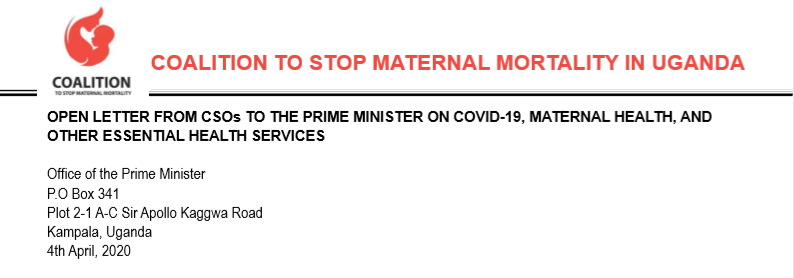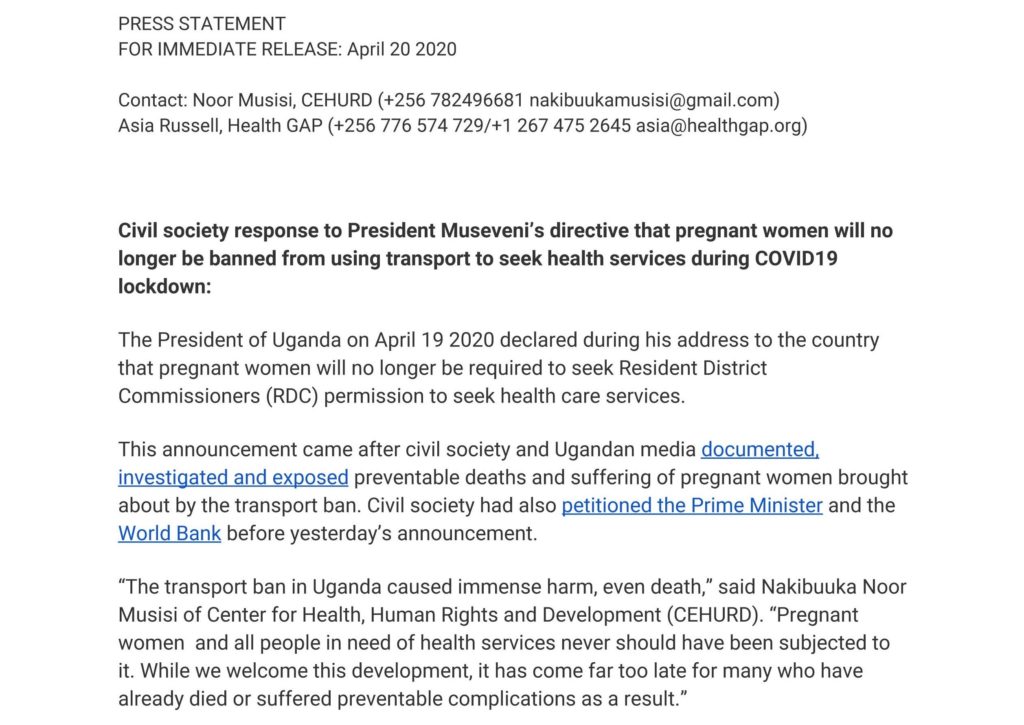
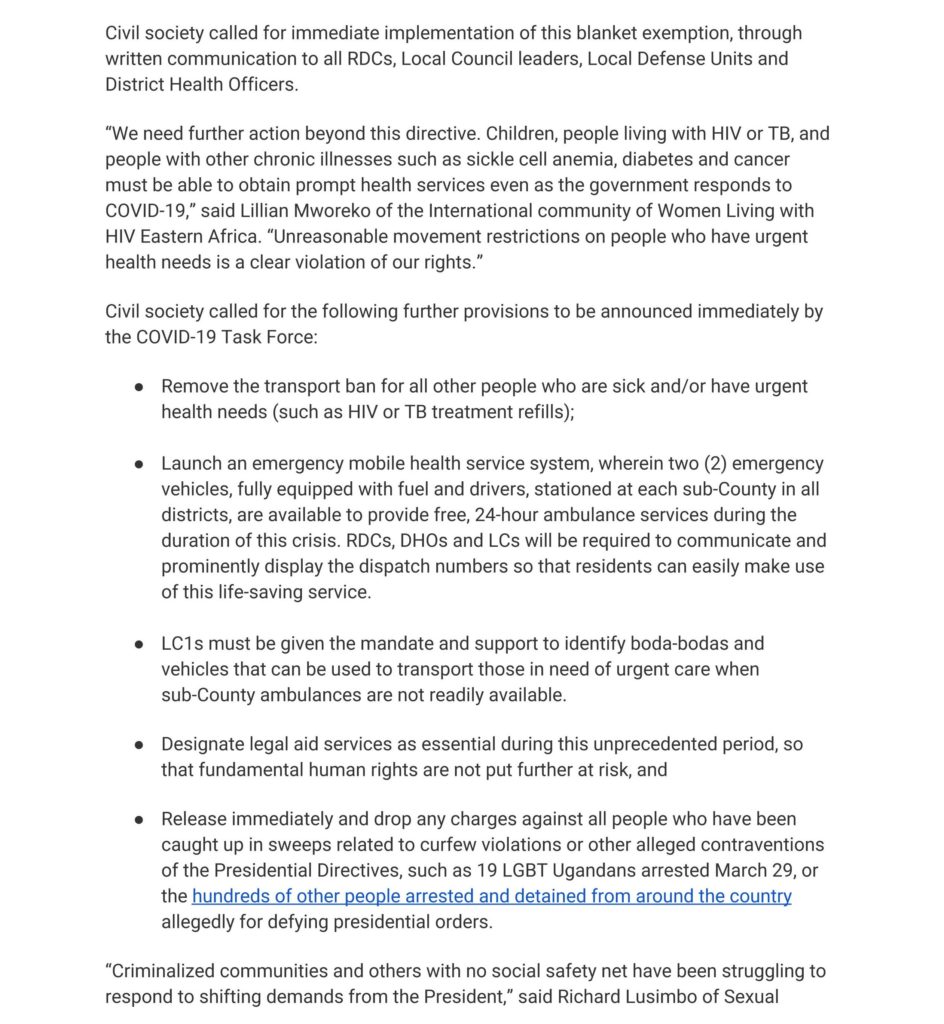
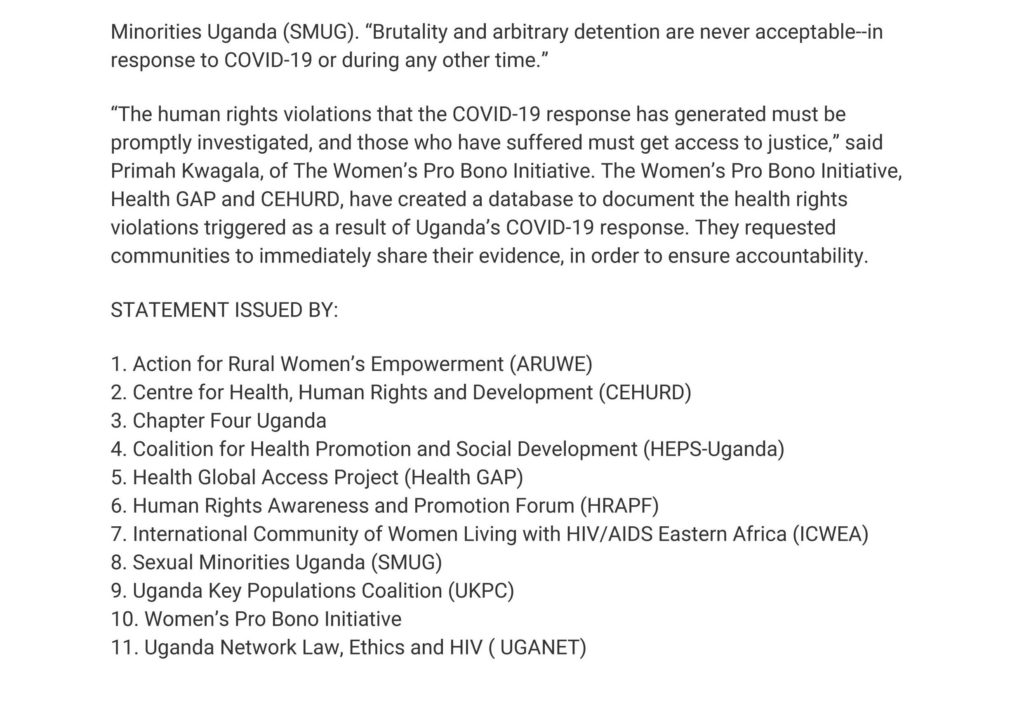

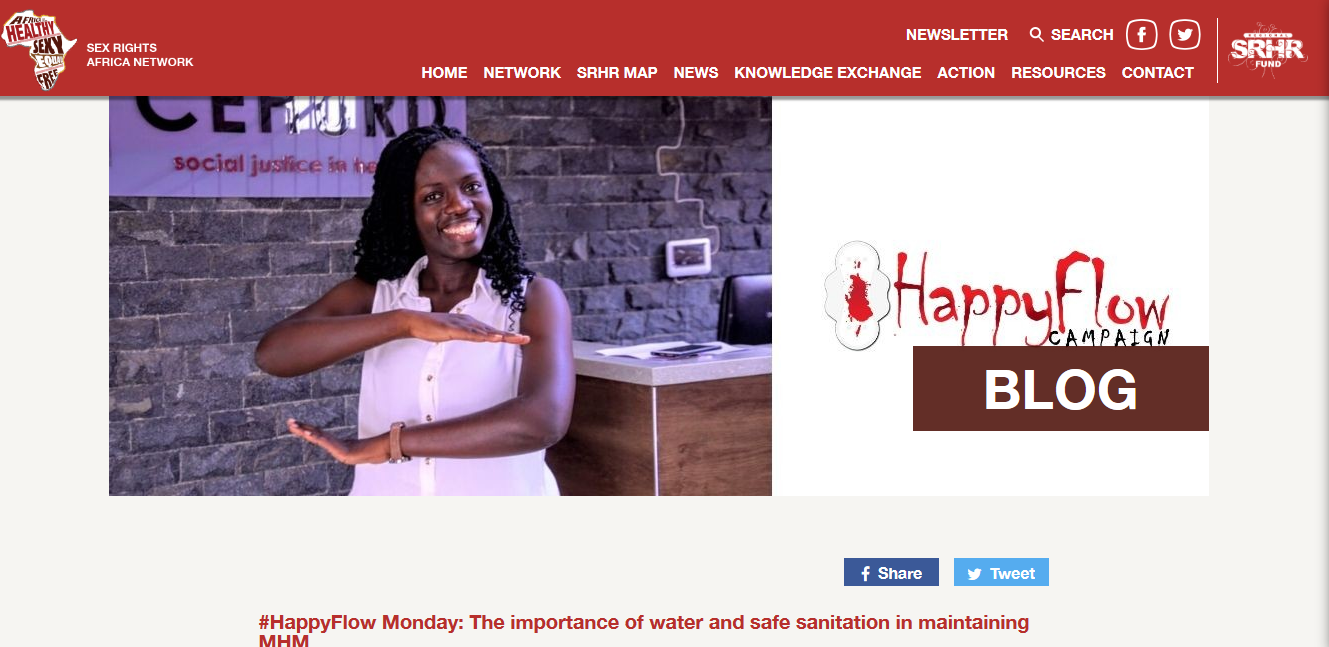
CEHURD participated in the 9th Africa Conference on Sexual Health & Rights held in Kenya between 12th – 14th February, 2020 which was partly sponsored by the Aids Foundation of South Africa (AFSA).
The Conference aimed at addressing challenges that people living in urban informal settlements and slums face in accessing basic services to health and their wellbeing, education, decent employment, food and shelter, protection from abuse and other human rights.
AFSA, the host of the Sex Rights Africa Network (SRAN), runs the #HappyFlowMonday campaign on menstrual health and hygiene.
Ms. Ruth Ajalo, our Program Officer attended this conference and through SRAN, has developed an article on the importance of water and safe sanitation in maintaining Menstrual Hygiene Management (MHM).
See link to the article here:
https://bit.ly/3a7hP8g
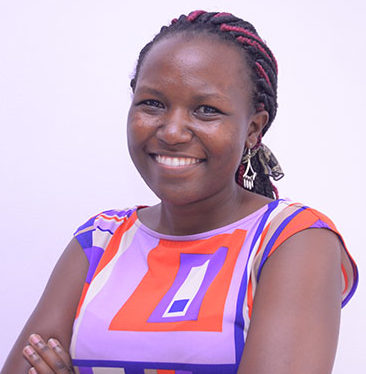
By Rose Wakikona
The health care system in Uganda has historically suffered gross neglect and has been crippled by under funding and lack of political will, this has greatly affected women and their reproductive health, the situation has since escalated with the measures taken to curb the COVID-19 pandemic, which has seen the country being put into lock down with a curfew imposed between 7:00pm and 6:30am, also no public or private transportation is being allowed save for cargo, to use private transport one needs permission from the Resident District Commissioner (RDC), who is only one in every district and to get to the RDC one has to walk, sometimes several kilometers.
The effect of these directives has negatively impacted on women’s health since the media has been awash with stories of women delivering babies on sidewalks because they cannot get transport to health facilities, they also cannot travel to the health facility to get antenatal and postnatal care. Contraceptives are not considered an emergency and are therefore inaccessible during this time and even when a woman manages to get to a health facility, there are no health workers because they are all trying to deal with COVID-19 or have failed to come to work because of the ban on transport. We have seen people living with HIV failing to get lifesaving medicine because they cannot get transport to the health facility.
The historic gross neglect of women’s reproductive health has led to damning statistics as can be seen in the persistently high maternal mortality ratio currently at 336 per 100,000 live births (UDHS) which means 16 women die every day while performing their maternal function. These deaths are majorly because of lack of basic maternal health commodities like gloves, syringes, blood, medicines etc. which enable a woman give birth safely. The restrictive laws and policies on women specific health care needs has persistently seen women being denied access to quality health care, this can be seen in the limited access to family planning services like contraceptives which continue to suffer persistent stock outs affecting continuous access.
Equally in 2016 the Parliament of Uganda issued a ban on Comprehensive Sexuality Education both in and out of school environments affecting access to critical health information for women and leading to an increasing number of unwanted pregnancies among teenagers which currently stands at 25%, a significant number of which end up in unsafe abortions estimated at 314,304 abortions per year, which translates into 800 unsafe abortions per day posing a serious public health human rights and social equity dilemma that affects millions of women.
The situation is further worsened when in 2018 the Government of Uganda turned a public service into a private service at the Mulago Specialised Women’s and Neonatal Hospital when they insisted on charging fees before a woman can access services at this public hospital, with women already being economically disempowered many have been locked out of receiving critical care because there is no public wing. This has been made more dire with the turning of Mulago Specialised Women’s and Neonatal Hospital into a treatment center for COVID-19 patients who wish for more comfort.
Sexual Gender Based Violence is another area with over 1,580 cases of rape and 15,366 cases of defilement reported in 2018, but with all these the government has failed to establish and run public shelters to address the unique psycho social needs of survivors of sexual violence which has led them to fail to cope with the trauma that comes with facing sexual violence. It also leaves survivors unprepared for court processes and reintegration within the community where they face stigma and alienation. With COVID-19 the survivors cannot access critical health care needed or seek refuge at police as they usually do because of the directives made.
When asked about the plight of women delivering on sidewalks because they could not access transport to take them to a health facility, the government responded that they want to prevent disorganization and women must wait for the RDC to give them permission to go to a health facility, even at the expense of their lives. The question is, if the same government can allow cargo trucks and goods delivery services to move, why can’t they allow women going to hospital the same privilege? I can only conclude by saying it has long been demonstrated that the lives of women do not matter in this country since even cargo is given more importance, women are instead always subjected to control and left to fend for themselves.
As we celebrate the International day for Maternal health and Rights, this country needs to be reminded of the obligation it has in Article 33(3) of the Constitution of the Republic of Uganda to protect women and their rights, taking into account their unique status and natural maternal functions in society. This means that even in the face of the COVID-19 pandemic, the health of women and their rights must be protected above all, they should therefore be allowed to access health care with ease especially where it is a matter of life and death. The government should therefore exempt women going to health facilities from seeking permission to move.
The writer is a Senior programme officer at the Center for Health, Human Rights and Development.
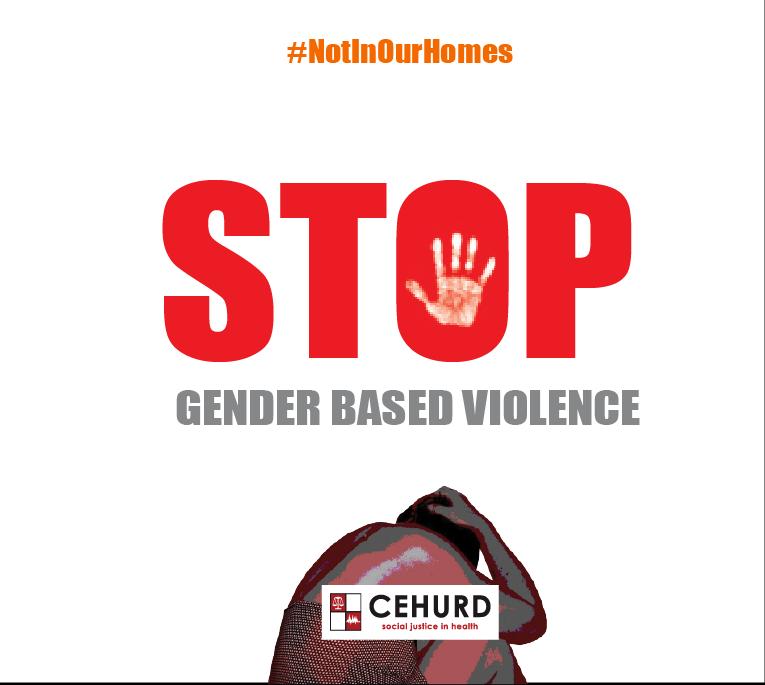
By Nakalembe Judith Suzan
As the COVID 19 pandemic furies around the world, Gender based violence drives high and women and girls are more vulnerable to abuse than ever. This has had serious consequences for women’s health since the pandemic has disrupted access to sexual and reproductive health and gender-based violence services at a time when women and girls need these services most”.[1]
Health care systems have been forced to channel all of their resources to combat the epidemic since it is perceived to be more pressing, despite the persistent need for adequate family planning, menstrual health resources, maternal care and protection of women form violence.
Movement restriction and lockdown while helpful in stopping the spread of the novel coronal virus has left women in abusive relationships trapped at home during the lockdown with the abuser, women usually use the gap of free movement time they need to escape the house, but the possibility of being locked up with the abuser for hours is something that should worry us all[2]
Pregnant women who need antenatal care are unsure whether to attend a clinic while some expectant mothers have been reported to have delivered by the road side others have lost their lives due to minimal and uncertain availability of transport means to health facilities.
The president of Uganda regulated movement of persons and vested the powers of authorization to the Resident City Commissioners (RCC) Resident District Commander (RDCs) and sub county chiefs for all those seeking medical care including expectant mothers whose condition often require emergency health care.
As the country has closed schools and set travel restrictions in the wake of the corona virus pandemic, women are facing the burden of balancing childcare and having to sleep at work places as per the presidential directive, let alone full filling other marital obligations as married women. Few men will let their wives sleep out of their home, an act that has triggered gender based violence and those who have persisted to go back home have been caught up by the curfew hours and ended up being flogged by security personals.
As CEHURD, we therefore call for an effective response to the pandemics needs to really look at gender dynamics in a meaningful way, as the pandemic is compounding existing gender inequalities, and increasing risks of gender-based violence.
[1] https://www.weforum.org/agenda/2020/04/covid-19-coronavirus-pandemic-hit-women-harder-than-men/
The Author is a Programme Officer at
CENTER FOR HEALTH HUMAN RIGHTS AND
DEVELOPMENT.
